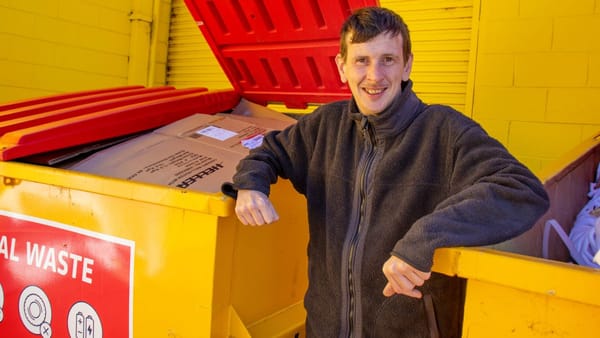Walk of the Month: Pangarinda Botanic Garden, Wellington East
Graham Hallandal invites you to take a tour of this little-known natural wonderland.

This post was contributed by Graham Hallandal.

Did you know there is a botanic garden at Wellington East?
Pangarinda is often described as our best kept secret.
After experiencing the gardens recently, I agree 100 per cent.
This gem, unknown to most Murraylands residents and visitors, is a must-visit attraction.
That is especially true now, when the spring foliage at its best, but it is worth returning several times a year.
Winter is also a good time to visit Pangarinda, as there is a huge collection of hakeas growing and that is the time when most are flowering.

Located at Pangarinda Drive, Wellington East, the gardens are situated on 30 hectares of Crown land with an extensive network of trails throughout the property.
You will probably spend more time there than originally planned, perhaps even several hours, walking leisurely; and by the time you leave, you will have many photos on your phone or camera.
This walk caters for all fitness levels, with seats scattered along the way.
An occasional stop to listen to the silence, the rustle of foliage in the wind or the sounds of the birds is just the medicine to relax and clear the mind.
Keep in mind that Pangarinda Botanic Gardens is a volunteer-initiated project.
Looking at the photo of the area before the project was started gives an idea of the enormous effort that has been expended over any years by a dedicated team of volunteers.
Where would we be without volunteers?

The botanic garden concept was initiated by a group of local residents seeking to beautify the district.
A committee was elected at a public meeting at Tailem Bend in September 1993.
The site – formerly weed-infested, eroded sand drifts with a few remnant patches of native pines – is managed by the Coorong District Council.
In 2010 approximately 12ha had been planted.
The threatened plant species were generally planted in their natural vegetation associations.
Volunteers have developed this site, aided by the council and support from community groups, businesses, and individuals.
When visiting, make time to walk the marked walkway, which takes walkers from the information bay through plants of Western Australia into the 2000 Olympic plantings of local vegetation.

When Tailem Bend Primary School’s pupils started planting in 2000 there were only weeds.
Today the walk takes you through a bush land of favourite places for many of our bird species.
Watch out for the small quails that scoot across from one bush to another and the noisy babblers, flying low between the boughs.
Note the danger calls from the New Holland honeyeaters when birds of prey fly past.
In May, look out for robin red breasts hopping along the fence and listen for golden whistlers giving their beautiful calls as they flit amongst the acacias.
More than 60 species of bird have been observed in and around the gardens.

“A” contains flora from the drier agricultural regions of South Australia, particularly the Murray Mallee and Coorong as well as the River Murray and Kangaroo Island.
Species of unknown provenance and for visual appreciation are near the southern gate.
“B”: within Western Australia are world-recognised major biodiversity hot-spots.
There, in unique environments, many species are suffering severe decline through weed invasion and habitat disturbance.
Three distinct areas are targeted: northern sand-plains, southern sand-plains and the arid interior.

“C”: Olympic Landcare 2000 plantings honouring local Paralympian Katrina Webb use only plant species of local provenance.
Since grazing was excluded and feral plant and animal species were controlled, natural regeneration has occurred, and many native bird and animal species have now returned.
“D”: Serious erosion and major weed invasions were combated with fencing to exclude stock and rabbits, perimeter rabbit control, and plantings of local provenance, including rare native ground orchids.
Many thanks must go to the Coorong council and the dedicated team of Pangarinda volunteers for information about the gardens.
- More information: www.coorong.sa.gov.au.

Previous walks of the month
- Murray Park and Dorset Street Reserve, Murray Bridge
- Murray Bridge Discovery Trail
- Narooma Wetland, Murray Bridge
- Riverglades Community Wetland
- Swanport Wetlands, Monteith
You can help keep local stories like this one free for everyone to read. Subscribe to Murray Bridge News today and support your independent, locally owned news service, plus get access to exclusive stories you won’t find anywhere else, for just $5.50 a month.




